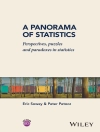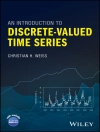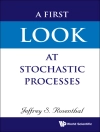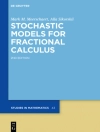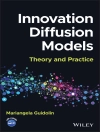Statistical methods have become an increasingly important and integral part of research in the health sciences. Many sophisticated methodologies have been developed for specific applications and problems. This self-contained volume, an outgrowth of an ‘International Conference on Statistics in Health Sciences, ‘ covers a wide range of topics pertaining to new statistical methods in the health sciences.
The chapters, written by leading experts in their respective fields, are thematically divided into the following areas: prognostic studies and general epidemiology, pharmacovigilance, quality of life, survival analysis, clustering, safety and efficacy assessment, clinical design, models for the environment, genomic analysis, and animal health.
This comprehensive volume will serve the health science community as well as practitioners, researchers, and graduate students in applied probability, statistics, and biostatistics.
Tabela de Conteúdo
Prognostic Studies and General Epidemiology.- Systematic Review of Multiple Studies of Prognosis: The Feasibility of Obtaining Individual Patient Data.- On Statistical Approaches for the Multivariable Analysis of Prognostic Marker Studies.- Where Next for Evidence Synthesis of Prognostic Marker Studies? Improving the Quality and Reporting of Primary Studies to Facilitate Clinically Relevant Evidence-Based Results.- Pharmacovigilance.- Sentinel Event Methods for Monitoring Unanticipated Adverse Events.- Spontaneous Reporting System Modelling for the Evaluation of Automatic Signal Generation Methods in Pharmacovigilance.- Quality of Life.- Latent Covariates in Generalized Linear Models: A Rasch Model Approach.- Sequential Analysis of Quality of Life Measurements with the Mixed Partial Credit Model.- A Parametric Degradation Model Used in Reliability, Survival Analysis, and Quality of Life.- Agreement Between Two Ratings with Different Ordinal Scales.- Survival Analysis.- The Role of Correlated Frailty Models in Studies of Human Health, Ageing, and Longevity.- Prognostic Factors and Prediction of Residual Survival for Hospitalized Elderly Patients.- New Models and Methods for Survival Analysis of Experimental Data.- Uniform Consistency for Conditional Lifetime Distribution Estimators Under Random Right-Censorship.- Sequential Estimation for the Semiparametric Additive Hazard Model.- Variance Estimation of a Survival Function with Doubly Censored Failure Time Data.- Clustering.- Statistical Models and Artificial Neural Networks: Supervised Classification and Prediction Via Soft Trees.- Multilevel Clustering for Large Databases.- Neural Networks: An Application for Predicting Smear Negative Pulmonary Tuberculosis.- Assessing Drug Resistance in HIV Infection Using Viral Load Using Segmented Regression.- Assessment of Treatment Effects on HIV Pathogenesis Under Treatment By State Space Models.- Safety and Efficacy Assessment.- Safety Assessment Versus Efficacy Assessment.- Cancer Clinical Trials with Efficacy and Toxicity Endpoints: A Simulation Study to Compare Two Nonparametric Methods.- Safety Assessment in Pilot Studies When Zero Events Are Observed.- Clinical Designs.- An Assessment of Up-and-Down Designs and Associated Estimators in Phase I Trials.- Design of Multicentre Clinical Trials with Random Enrolment.- Statistical Methods for Combining Clinical Trial Phases II And III.- SCPRT: A Sequential Procedure That Gives Another Reason to Stop Clinical Trials Early.- Models for the Environment.- Seasonality Assessment for Biosurveillance Systems.- Comparison of Three Convolution Prior Spatial Models for Cancer Incidence.- Longitudinal Analysis of Short-Term Bronchiolitis Air Pollution Association Using Semiparametric Models.- Genomic Analysis.- Are There Correlated Genomic Substitutions?.- Animal Health.- Swiss Federal Veterinary Office Risk Assessments: Advantages and Limitations of The Qualitative Method.- Qualitative Risk Analysis in Animal Health: A Methodological Example.







